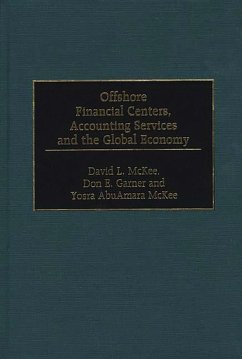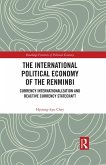The new global climate of free enterprise has brought with it a proliferation of offshore financial centers that presumably have important roles to play in the emergent global economy. The air of secrecy that appears to pervade the activities of offshore financial centers may well slant or obscure any real understanding of the functions of such centers. The authors investigate the role of major international accounting firms and their services in the processes of business facilitation in the locations that host these centers. By focusing the investigation upon the role of the accounting firms in offshore financial centers, the authors gain a better grasp of the real or potential impacts of the firms in the global economy and in the jurisdictions that host them. Not only do the authors provide a detailed assessment of what the major accounting firms are actually doing in the centers, but they point out what attributes are needed by jurisdictions hoping to succeed as offshore financial centers. The centers included are Antigua, Barbuda, the Bahamas, Barbados, Bermuda, the Cayman Islands, the Channel Islands, the Isle of Man, Gibraltar, Malta, Cyprus, Bahrain, the United Arab Emirates, Mauritius, the Seychelles, Singapore, and Vanuatu.
The authors describe the legal and institutional environments facing business operations in general and the accounting firms in particular in offshore financial centers. By studying these operations, it should show what they are doing in terms of facilitating the international activities that flow through such centers. It should also add to the understanding of the potential that offshore activities have as vehicles for development in small emerging economies. This study should be of interest to a wide range of business disciplines, as well as governmental agencies in advanced and emerging nations, international agencies such as regional development banks, and accountants and the international financial community.
The authors describe the legal and institutional environments facing business operations in general and the accounting firms in particular in offshore financial centers. By studying these operations, it should show what they are doing in terms of facilitating the international activities that flow through such centers. It should also add to the understanding of the potential that offshore activities have as vehicles for development in small emerging economies. This study should be of interest to a wide range of business disciplines, as well as governmental agencies in advanced and emerging nations, international agencies such as regional development banks, and accountants and the international financial community.









